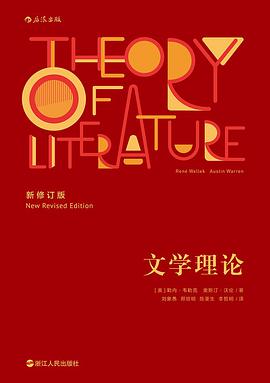René Wellek (August 22, 1903 – November 11, 1995) was a Czech-American comparative literary critic. Like Erich Auerbach, Wellek was an eminent product of the Central European philological tradition and was known as a vastly erudite and "fair-minded critic of critics."René Wellek was born and raised in Vienna, speaking Czech and German. He studied literature at the Charles University in Prague, and was active among the Prague School linguists there, before moving to teach at School of Slavonic and East European Studies (now part of University College London) in 1935. His younger brother Albert Wellek (1904-1972) was one of the founders of musical psychology and lived in Germany. Before 1939, Wellek published some 60 items, all written in Czech.From 1939, the beginning of World War II in Europe, Wellek lived in America. He taught first at the University of Iowa for seven years until 1946, and then, beginning in that year, at Yale University, where he established and chaired a department of comparative literature. In the United States, he was "widely regarded as a founder of the study of comparative literature." With Austin Warren, Wellek published a landmark volume entitled Theory of Literature, one of the first works to systematize …
René Wellek
Author details
- Born:
- Aug. 21, 1903
- Died:
- Nov. 10, 1995
External links
René Wellek (August 22, 1903 – November 11, 1995) was a Czech-American comparative literary critic. Like Erich Auerbach, Wellek was an eminent product of the Central European philological tradition and was known as a vastly erudite and "fair-minded critic of critics."René Wellek was born and raised in Vienna, speaking Czech and German. He studied literature at the Charles University in Prague, and was active among the Prague School linguists there, before moving to teach at School of Slavonic and East European Studies (now part of University College London) in 1935. His younger brother Albert Wellek (1904-1972) was one of the founders of musical psychology and lived in Germany. Before 1939, Wellek published some 60 items, all written in Czech.From 1939, the beginning of World War II in Europe, Wellek lived in America. He taught first at the University of Iowa for seven years until 1946, and then, beginning in that year, at Yale University, where he established and chaired a department of comparative literature. In the United States, he was "widely regarded as a founder of the study of comparative literature." With Austin Warren, Wellek published a landmark volume entitled Theory of Literature, one of the first works to systematize literary theory. Beginning in the 1960s, Wellek defended the New Critics against the condemnation of their work in the name of a structuralist-influenced literary theory, and is thus sometimes classed as a conservative critic. Wellek advocated a synthesized approach to literary criticism, one that included 1) literary theory, 2) a careful study of previous works of criticism, and 3) a thorough understanding of the surrounding history involved in an author's creation of a work, including the author's personal history and milieu. Any approach elevating one of these aspects above the other would be in error. Wellek said the best literary critic must "do what every scientist and scholar does: to isolate his object, in our case, the literary work of art, to contemplate it intently, to analyze, to interpret, and finally to evaluate it by criteria derived from, verified by, buttressed by, as wide a knowledge, as close an observation, as keen a sensibility, as honest a judgment as we can command." According to Wellek, bringing all of literary theory, criticism, and history into consideration allows a critic to achieve "victory over impermanence, relativity, and history."The crowning work of Wellek's career was an eight-volume magnum opus entitled A History of Modern Criticism: 1750-1950, the last two volumes of which he dictated from his bed in a nursing home at age 92.
